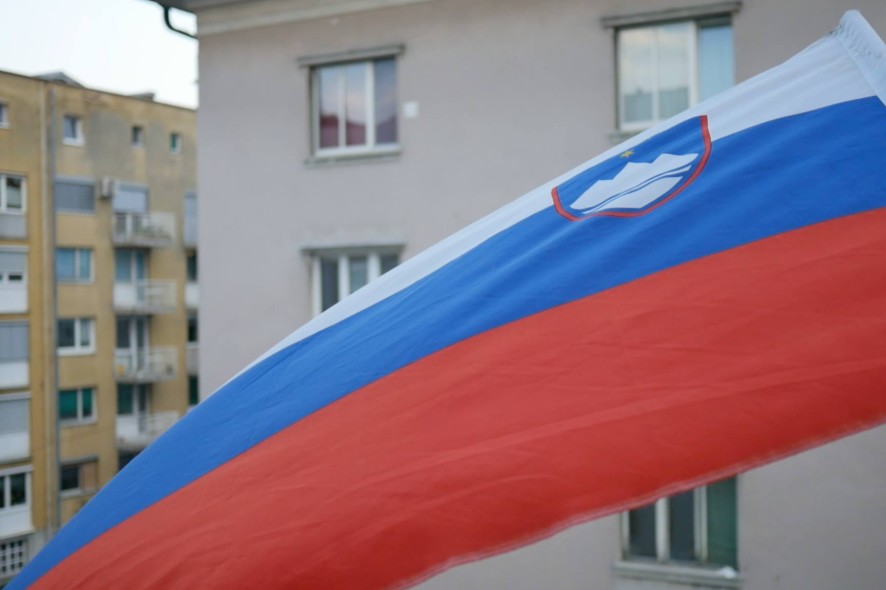by Marko Kebe
You could tell a lot of Slovenia just by looking at its position on the map of Europe. By saying this I am not refering only on geographical features but moreover on its political and cultural characteristics. Slovenia is indeed a unique case of a country that combines various different landscapes and natural beauties within only 20,273 km2.
Slovenia as a heart of Europe where “the Alps meet the Mediterranean and the Pannonian Plain meets the Karst” is something you would normally read in a tourist catalogue about Slovenia. It is maybe a bit pretentious calling ourselves “the heart of Europe” but from where I am standing we can allow ourselves this little mischief since we are indeed very much proud of our unique blend of various natural, cultural and architectural features.
Pretentious as it might be, Slovenians are generally considered to be rather humble and obedient when it comes to the relations with other countries. Throughout its history up until its independence in 1991 Slovenia has always been subjected to the authority of different royal houses and supranational entities from the rule of Habsburgs to the more recent one of Yugoslavia (let’s leave EU alone for a while).
When discussing my country and its role in international affairs with the students from abroad I frequently like to mention our anthem Zdravljica (The Toast) by France Prešeren which is one of the most pacifist and enlightened anthems I’ve ever came across:
“God’s blessing on all nations,
Who long and work for that bright day,
When o’er earth’s habitations
No war, no strife shall hold its sway;
Who long to see
That all men free
No more shall foes, but neighbours be! “
The seventh stanza of Zdravljica – The National Anthem of Slovenia
So, where does this inability to fulfill its interests as an independent actor stem from? And why have Slovenians decided that it is time for a more modern approach when dealing with other nation states? Well, first of all, Slovenia is a relatively small country when it comes to the population with its 2 million inhabitants. It’s economy is – as you can imagine – comparatively small with approximately EUR 45bn EUR of GDP in 2014. Putting its smallness aside Slovenia always had a very healthy balance of trade in merchandise where exports always exceeded its imports. Slovenia’s merchandise exports in 2014 rose by 6.9% to EUR 23.04bn, an all-time high, while imports grew by 2.4% to EUR 22.65bn (Statistical Office of the Republic of Slovenia). Trends seem to be improving and hopefully our generation will once be able to escape these shackles of crisis and depression we have constantly been reminded of throughout our youth and studies.
Oh yes, as small as Slovenia is, the tentacles of the globalized economy haven’t spared her, quite the opposite, Slovenian economy has been badly hurt by the financial meltdown. Large cuts in public spending have been necessary to avoid international bailout not to mention the ongoing plans for privatization – the topic where a lot of blood is spilled when it comes to political rivalry. Slovenian reputation in international affairs has indeed fallen quite significantly from a model transition state to a near financial fiasco.
While the economy was booming everything was safe and sound but the flaws of inadequate regulation in economic affairs became much more obvious and painful once the crisis hit the small but beautiful Slovenian shore (figuratively speaking of course). It has become apparent that the bad management of some state owned companies can be ascribed to the clientelism which was inherited from the ex-Yugoslav regime where the line between business and politics was very much blurred. Slovenia has therefore been regularly pointed out as being on top in Europe regarding corruption in it’s business practices (Watch Ernst & Young’s: Europe, Middle East, India and Africa Fraud Survey 2015) – definitely not something we can be proud of.
I would have to confess that there really exists a certain ambiguity when it comes to Slovenia(ns), which brings me back to the idea I have pointed out in the beginning. As much as Slovenia is divided in its natural diversity so it is divided in its political and cultural sense. As I have mentioned in the previous paragraph, we face quite some difficulties regarding transparency and meritocracy. We really are somehow divided between the German way of keeping things in order and more of a hang loose approach which is prevailing on the Balkans. Translated into the language of politics, we are strongly trying to give an impression of a westernized state with strong economical and political discipline, whereas our actions and customs aren’t really speaking in favor of it.
Cultural divergence is on the other hand something we have to cherish and respect: you wouldn’t believe how many different dialects we have in such a small area; practically every micro region has an accent and a culture of its own. Although a lot of young people are searching for opportunities in bigger cities such as Ljubljana or Maribor, a normal Slovenian will always stay somehow attached to where he/she comes from (if not in any other way, than by his accent).
This of course brings us to the question what does it actually mean to be a Slovenian? Or “what are Slovenian stereotypes”, which is something I get frequently asked? These are the questions I was never able to answer fully and probably never will. This of course doesn’t mean that we are a nation without a significant character or purpose, rather contrary, I think our struggle and ability to reach independence gives us enough leverage to be proud on our small but beautiful Slovenia.




